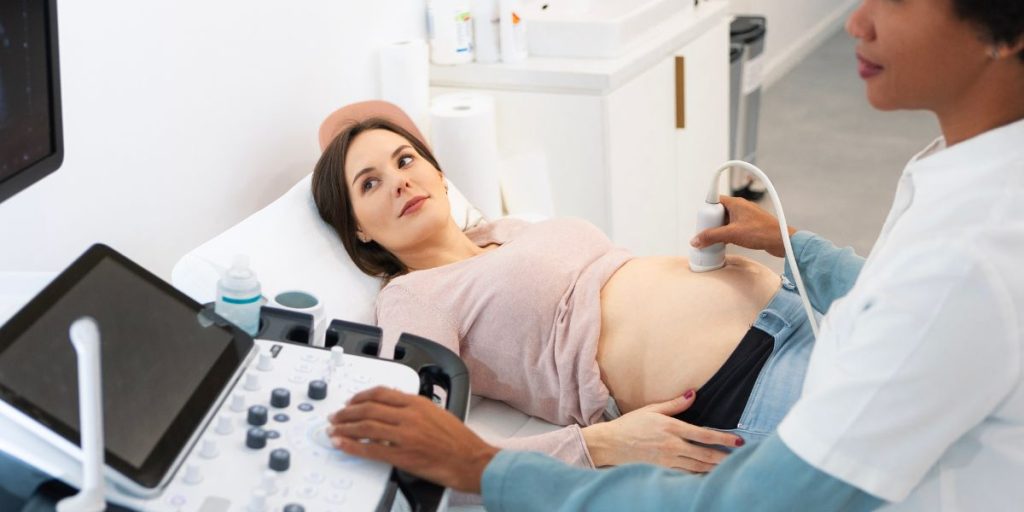Expecting a baby brings both excitement and a host of important decisions. Among the most critical is understanding a baby’s health early in pregnancy. The Harmony blood test for pregnancy has emerged as a trusted screening tool for identifying genetic conditions with accuracy and safety. With its advanced technology and non-invasive approach, it offers expectant individuals peace of mind in the earliest stages of their journey.
Table of Contents
A Closer Look at the Harmony Prenatal Test
One approach of non-invasive prenatal screening, or NIPT for short, is known as Harmony predictive check. It tests cell-free fetal DNA in the maternal blood and can help to identify several chromosomal abnormalities. This process is more sophisticated than other techniques like chorionic villus sampling or amniocentesis, and it may be completed with a straightforward blood test; as a result, it does not have the drawback of raising the miscarriage rate.
The primary conditions screened include:
- Trisomy 21 (Down syndrome)
- Trisomy 18 (Edwards syndrome)
- Trisomy 13 (Patau syndrome)
Additional options can include testing for sex chromosome conditions and determining fetal sex.
Why Early Detection Is Essential
Early detection of chromosomal abnormalities during pregnancy gives important information regarding control of care and pre-planning. Early screening enables physicians to offer prompt follow-up examinations, consultations with genetic counselors, and assistance tailored to each patient’s requirements.
Early awareness also alleviates anxiety and uncertainty, enabling individuals and families to make informed choices regarding the future. The Harmony test is usually conducted from as early as 10 weeks of pregnancy, providing sufficient time to prepare for possible outcomes.
Advanced Accuracy with Minimal Risk
One of the key benefits of the bbbbbbbbbbbbbbbbbbbbbbbb is its high level of accuracy. It delivers:
- Over 99% detection rate for Down syndrome
- False-positive rate of less than 0.1%
- Validated performance in both singleton and twin pregnancies
The test also performs well in IVF pregnancies and pregnancies conceived using donor eggs. Its exceptional precision significantly reduces the likelihood of unnecessary invasive procedures and false alarms.
What Sets the Harmony bbbbbbTest for Pregnancy Apart
The Harmony blood test for pregnancy uses targeted DNA analysis and proprietary algorithms that distinguish fetal DNA from maternal DNA in the bloodstream. This process improves reliability and ensures that the results are tailored to the individual pregnancy.
Unlike traditional serum screening, which can yield ambiguous results, the Harmony test provides clear, evidence-based insights. Its convenience — just a single blood draw — makes it an attractive option for those seeking clarity without complication.
Who Should Consider the Harmony Test?
The Harmony test is available to anyone seeking accurate early screening, but certain individuals may especially benefit:
- Those aged 35 or older, where the risk of chromosomal abnormalities increases
- People who have obtained abnormal effects from other prenatal screenings
- Pregnancies conceived via IVF or egg donation
- Those with a personal or family history of genetic conditions
The Harmony blood test for pregnancy is not limited to high-risk groups. Many expectant parents choose it for peace of mind, regardless of their background or medical history.
Supporting Better Pregnancy Decisions
As an invasive screening test, the Harmony Prenatal Test is not a diagnostic tool, but the results can inform further management of pregnancy. When the result turns out positive, further diagnostic tests such as amniocentesis should be taken to check the efficacy. Finally, negative results can save additional testing or serve, at least, to calm the worried during the critical period.
This paper also shows that by adding the Harmony test to prenatal care, people are given more than just results, but direction, time, and assistance. The information assists in communication with health care providers and enables a preventive approach to fetal health.
How to Access the Harmony Test
It is easily accessible at most certified clinics, and at Miracle Inside, staff members are ever ready to welcome you and take you through the process. They normally take approximately 5 to 7 working days to retrieve results and offer frequent updates without the need to wait for long hours.
It is also possible to discuss the results, and their meaning with a prenatal specialist before and after the test based on each person’s personal history and pregnancy experience.
Conclusion
The Harmony Prenatal Test stands out as a safe, accurate, and non-invasive option for early detection of genetic conditions during pregnancy. By offering actionable insights with minimal risk, it empowers expectant individuals to make informed choices about their future.
Choosing the Harmony blood test for pregnancy can provide peace of mind when it matters most. With its advanced accuracy, early timing, and ease of access, it represents a thoughtful step toward ensuring a healthy pregnancy and a well-supported path to parenthood.

